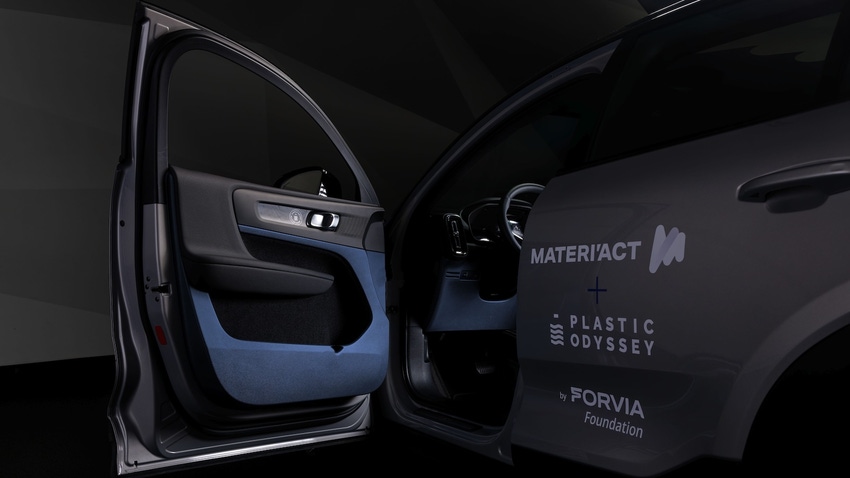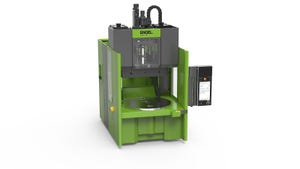Ocean-bound Plastic Washes Up in Car Interiors
A concept car developed by the sustainable materials branch of automotive Tier I Forvia integrates panels made with ocean-bound plastic.
April 17, 2024

Materi’act, the sustainable materials subsidiary of automotive Tier I Forvia (previously Faurecia), has developed a concept car integrating instrument and door panels made with ocean-bound plastic (OBP). This project was conceived as part of a partnership between the Forvia Foundation and Plastic Odyssey, an NGO that supports local communities in the collection, cleaning, treatment, and recycling of OBP.
Out of the black and into the blue.
In January, Materi’act revealed a vehicle door panel where black virgin materials were replaced by a deep blue engineered experimental compound made of plastic material collected by Plastic Odyssey on beaches and oyster shells. As a demonstration of the large technical and design capabilities of this sustainable concept and at the occasion of Forvia’s Sustainability Day in March 2024, Materi’act revealed a complete cockpit interior with four door panels and one instrument panel integrating OBP. The combination of OBP and biomass allows a 20% reduction in CO2 impact, opening the path toward Materi’act’s target of up to 85% CO2 reduction.
“This sustainable car interior, integrating ocean-bound plastics, illustrates the capabilities of Materi’act to valorize more complex but also more meaningful waste sources. It also serves as a testimony to our commitment to provide sustainable and meaningful products to automakers and end-users,” commented Rémi Daudin, President of Materi’act.
Eco-design optimized.
Materi’act’s NAFILean Vision (Natural Fillers for Lean and Visible design) compounds incorporate up to 20% of recycled OBP and bio-based filler consisting of oyster shell particles. Decarbonization of plastics can be maximized by combining low-carbon recycled plastics and renewable bio-based fillers that can also sequester CO2. The need for post-processing with paint or film in automotive applications is also reduced, further enhancing the CO2 footprint, recycling, and cost reduction.
OBPs present a potential source of recycled feedstock, supplementing other sources such as post-consumer and post-industrial recycled materials and end-of-life vehicles.
This also results in a range of aesthetic sustainable materials with “infinite design possibilities” able to reflect the nature and origin of the feedstocks in a variety of colors, grains, and high-quality perceived textures.
This new achievement underscores Materi’act’s and Forvia’s ability to integrate recycled plastics from various origins into car interiors without compromising the stringent performance and safety standards set by automakers nor the perceived quality expected by consumers.
About the Author(s)
You May Also Like




